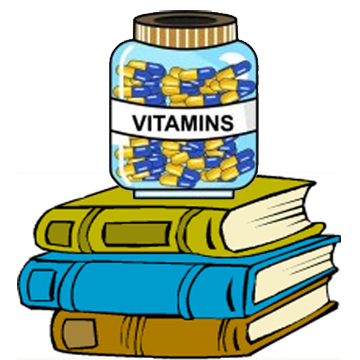A LESSON for authors from a trip to the HEALTH FOOD store
The other day I found myself in a local health food store, doing some recon on a potential (non-publishing) client. This vitamin/supplement company is looking for help to refine their brand and marketing message, so I went to the store to see what I could find out about them by the way their products were stocked and displayed. Come to find out, of the dozen+ products the company makes, this store carried only 3 of them – and I had to  remind the store manager that one of the 3 was this company’s product. Whew – we’ve got a lot of work ahead of us!
remind the store manager that one of the 3 was this company’s product. Whew – we’ve got a lot of work ahead of us!
I was fortunate to get a few minutes with the store manager, who reminded me of a few things I want to pass on to you, my fellow SBMs*, because they are quite easily translatable to your books.
- A phone call isn’t going to do it. In order to jump the huge hurdle of getting your book into a reputable INDIE shop, you (or someone acting as your rep) have to go to that shop and build a one-on-one relationship. “I get as many as 3 dozen calls a week, asking me if they can send samples or e-mail me a brochure,” Christine, the health food store manager, told me. “They almost never make it to the shelves.”
- Customer requests significantly influence the store’s decision to stock a product. If no one ever asks for your book, a bookstore has no incentive to give up valuable shelf space for it. On the other hand, if people regularly call to request your book – and/or go to that shop to purchase it – the store now has a reason to make sure they keep copies on their shelves.
- In-store demos are a huge boon for many products. Translate “in-store demos” to “book signings.” Sure, some bookstores charge for that book signing, just as this store charges for the supplement company to set up a table, but if you do it at a high-volume time and promote your visit beforehand, you can attract additional interest in your book.
- Use the store’s existing marketing channels. This particular store runs a M-F radio show on a local station; suppliers can purchase commercials or pay to be featured guests on the show. What a great credibility builder! Most indie bookstores have a newsletter – see about getting your signing (or even an ad or review for your book) into their newsletter.
- Show good faith by marketing the store as part of your own promotions. How happy would that indie bookshop be to have you put a note at the bottom of each article, blog post, FB announcement, or ad that says, “Available at XYZ Indie Bookstore”? If you promote them, they’re going to be a lot more willing to extend the reciprocal favor to you.
Bookstore sales aren’t for everyone. It takes a LOT of work for an indie publisher to get in, even to an indie bookstore. The Passive Voice blog shares these points about two indie books that succeeded in an indie bookshop:
- The books were actually good.
- Both authors were relentless at getting excellent press about their books. They didn’t just get press once, they got it repeatedly.
- The authors were good about checking in about stock levels. Self-published authors can get a little overly aggressive about checking stock, but with these two books at the holidays, it was enormously helpful.
- Both authors were very meticulous about record-keeping.
And it is the RAREST of indie authors who make the jump to the last big chain, B&N. However, Barnes & Noble does offer the following tips for getting into their distribution channels:
- Does your book have an International Standard Book Number (ISBN)?
- Does your book have a bar code?
- What sort of binding (saddle stitch, staple, perfect, plastic comb, ring) does your book have?
- Is your book available through a wholesaler?
- Is your book priced competitively with other titles of a similar topic and quality?
- Has your book met compliance certification?
- Why should Barnes & Noble place your title on its shelves?
- Where can you find more information on the topic of book writing, publishing, and marketing?
While it’s no longer a requirement that your book be in bookstores to sell lots of copies, it is possible for a small/self-published/indie author to succeed in brick-and-mortar shops. If you want to get your book into bookstores, make sure you do your research first. Cross all your T’s and dot all your I’s. Follow the store’s protocol. Whenever possible, walk in and talk to the purchasing manager. Follow up diligently and keep good records.
Remember, your attitude and focus will go a long way toward influencing your success. If you believe you can do it, you will.
Happy promoting!
Laura
*Savvy Book Marketer
__________________
Please contact us if you’d like help putting together your media kit, media releases, or book proposal. Free 30-minute consultation when you mention this post ($99 value).
__________________
We welcome and encourage your thoughtful, courteous comments below.



















